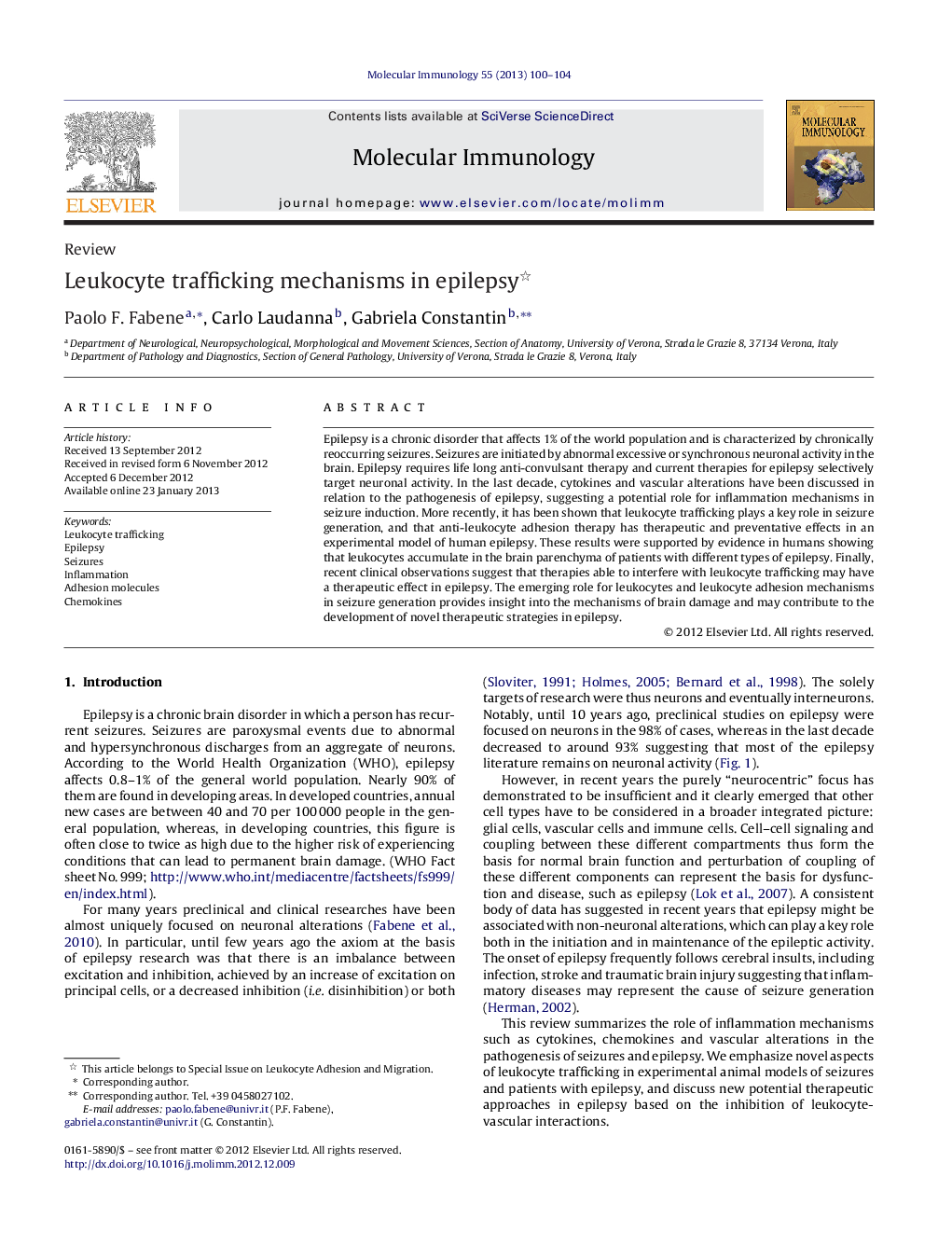| کد مقاله | کد نشریه | سال انتشار | مقاله انگلیسی | نسخه تمام متن |
|---|---|---|---|---|
| 2830910 | 1163771 | 2013 | 5 صفحه PDF | دانلود رایگان |

Epilepsy is a chronic disorder that affects 1% of the world population and is characterized by chronically reoccurring seizures. Seizures are initiated by abnormal excessive or synchronous neuronal activity in the brain. Epilepsy requires life long anti-convulsant therapy and current therapies for epilepsy selectively target neuronal activity. In the last decade, cytokines and vascular alterations have been discussed in relation to the pathogenesis of epilepsy, suggesting a potential role for inflammation mechanisms in seizure induction. More recently, it has been shown that leukocyte trafficking plays a key role in seizure generation, and that anti-leukocyte adhesion therapy has therapeutic and preventative effects in an experimental model of human epilepsy. These results were supported by evidence in humans showing that leukocytes accumulate in the brain parenchyma of patients with different types of epilepsy. Finally, recent clinical observations suggest that therapies able to interfere with leukocyte trafficking may have a therapeutic effect in epilepsy. The emerging role for leukocytes and leukocyte adhesion mechanisms in seizure generation provides insight into the mechanisms of brain damage and may contribute to the development of novel therapeutic strategies in epilepsy.
► Vascular inflammation and leukocyte trafficking have been implicated in epilepsy.
► Blockade of adhesion molecules inhibits seizure generation in experimental models.
► Leukocytes accumulate in the brain of patients with epilepsy.
► Inflammation mechanisms may represent new therapeutic targets in epilepsy.
Journal: Molecular Immunology - Volume 55, Issue 1, August 2013, Pages 100–104